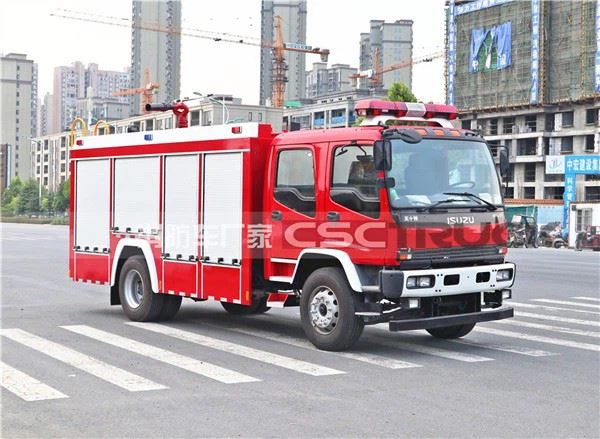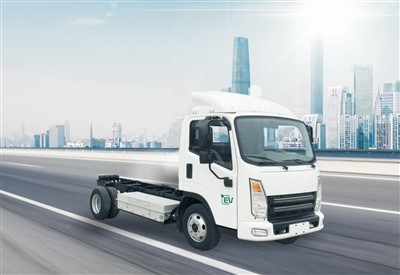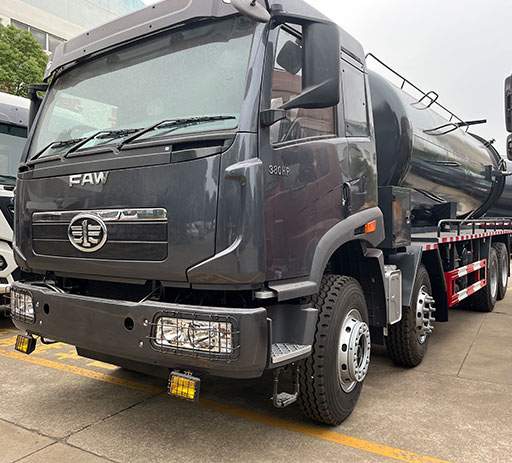The Ultimate Guide to Freezer Trucks: Everything You Need to Know

Introduction
Freezer trucks play a crucial role in the transportation of perishable goods. These specialized vehicles are designed to maintain low temperatures, ensuring that food items, pharmaceuticals, and other temperature-sensitive products arrive at their destinations in perfect condition. This comprehensive guide will delve into the ins and outs of freezer trucks, covering their types, benefits, operational tips, and more. Whether you’re a business owner looking to invest in a freezer truck or a curious reader wanting to understand how they work, you’ll find valuable insights in this article.

What is a Freezer Truck?
A freezer truck, also known as a refrigerated truck, is a vehicle equipped with a refrigeration system that allows it to transport goods at controlled temperatures. Freezer trucks are essential for the food and beverage industry, as they prevent spoilage and ensure food safety during transit.
Key Features of Freezer Trucks
- Insulated Cargo Area: The body of the truck is insulated to maintain low temperatures.
- Refrigeration Unit: Equipped with a cooling unit that can maintain specific temperature ranges.
- Thermal Curtains and Airflow Systems: These allow for even cooling and temperature controls.
Types of Freezer Trucks
Freezer trucks come in various designs and sizes to cater to different transportation needs.
1. Single Temperature Freezer Trucks
These trucks maintain a consistent temperature throughout the cargo area, ideal for transporting a single type of product, such as ice cream or frozen meats.
2. Multi-Temperature Freezer Trucks
These trucks are equipped with multiple compartments, each capable of maintaining different temperatures. They are perfect for transporting various perishable items that require different conditions.
3. Van Freezer Trucks
Van freezer trucks have a boxy structure and are often used for local deliveries within cities. They provide ample cargo space and excellent insulation.
4. Shipping Container Refrigerated Trucks
These vehicles use refrigerated containers that can be loaded onto ships or trains. They’re useful for long-distance transport across different climates.
The Importance of Freezer Trucks in Transportation
In today’s fast-paced world, the demand for frozen products is higher than ever. Freezer trucks ensure the safety and quality of goods during transit, protecting consumers and supporting industries that rely on perishable products. Here are some critical reasons why freezer trucks are essential:
Food Safety
Maintaining appropriate temperatures during transport prevents the growth of harmful bacteria, ensuring food safety and public health.
Reduced Spoilage
Freezer trucks minimize food spoilage and loss, significantly benefitting suppliers and retailers financially.
Wider Market Reach
Businesses can expand their reach, supplying frozen goods to distant locations without worrying about product degradation.
How Freezer Trucks Work
The functioning of a freezer truck is straightforward but requires careful operation to maintain efficiency. Here’s how they work:
Refrigeration System
The refrigeration system circulates refrigerant through evaporator and condenser coils, effectively cooling the cargo area. This system can range from a simple mechanical unit to more advanced temperature control mechanisms, depending on the truck’s design.
Temperature Monitoring
Most modern freezer trucks come equipped with temperature monitoring systems that provide real-time updates. These systems help ensure that goods remain within the recommended temperature range throughout transport.
Regular Maintenance
To ensure optimal performance, regular maintenance of the refrigeration units, wheels, and overall structure is critical. Businesses should schedule routine check-ups to avoid breakdowns during transit.
Choosing the Right Freezer Truck for Your Needs
Selecting the appropriate freezer truck for your business requires careful consideration of several factors:
1. Size and Capacity
Determine the volume of goods you will be transporting. Freezer trucks come in various sizes, from small, local delivery vans to large, heavy-duty trucks.
2. Temperature Range
Understanding the temperature requirements of your products is essential. Some goods may need deep freezing, while others only require cooler temperatures.
3. New vs. Used Trucks

Decide whether to buy a new or used freezer truck. New trucks come with warranties and the latest technology, while used trucks are more affordable.
4. Budget
Establish a budget, considering purchase price, maintenance costs, and operational expenses like fuel efficiency.
Operational Tips for Freezer Trucks
To ensure the effective operation of freezer trucks, follow these practical tips:
1. Pre-Trip Inspections
Conduct thorough inspections before each trip, checking the refrigeration unit, tires, and overall condition of the truck.
2. Load Properly
Load your products efficiently to allow for air circulation within the cargo area. Avoid overcrowding to maintain optimal cooling.
3. Maintain Consistent Temperatures
Regularly check the temperature during transit. Adjust settings on the refrigeration unit as needed and ensure doors are minimized to avoid temperature loss.
4. Staff Training
Ensure that all drivers and staff handling the maintenance and transportation of products are properly trained in temperature management and safety protocols.
Costs Associated with Freezer Trucks
Understanding the associated costs with freezer trucks is essential for effective budgeting. Key costs include:
1. Purchase Costs

| Type of Truck | Cost Range |
|---|---|
| Single Temperature Truck | $20,000 – $50,000 |
| Multi-Temperature Truck | $30,000 – $60,000 |
| Van Freezer Truck | $15,000 – $40,000 |
2. Operating Costs
Consider fuel costs, maintenance expenses, insurance, and repair costs, among others.
Frequently Asked Questions (FAQs)
1. What temperature should a freezer truck maintain?
Generally, freezer trucks should maintain a temperature of -18°C (0°F) or lower for safe transportation of frozen goods.
2. How long can products be kept in a freezer truck?
The duration varies by product. Most frozen items can last indefinitely if kept at the correct temperature, while some products may have specific time limits for quality retention.
3. Can I convert a regular truck into a freezer truck?
Yes, it’s possible to convert a regular truck by installing a refrigeration unit, but consideration should be given to insulation and load capacity.
4. What are the most common products transported in freezer trucks?
Common products include frozen meats, seafood, ice cream, pharmaceuticals, and other temperature-sensitive goods.
5. How should freezer trucks be loaded?
Products should be loaded to allow for proper air circulation, preventing uneven cooling and possible spoilage.
6. Do I need a special license to operate a freezer truck?
Typically, a commercial driver’s license (CDL) is required to operate larger freezer trucks, depending on weight and local regulations.
